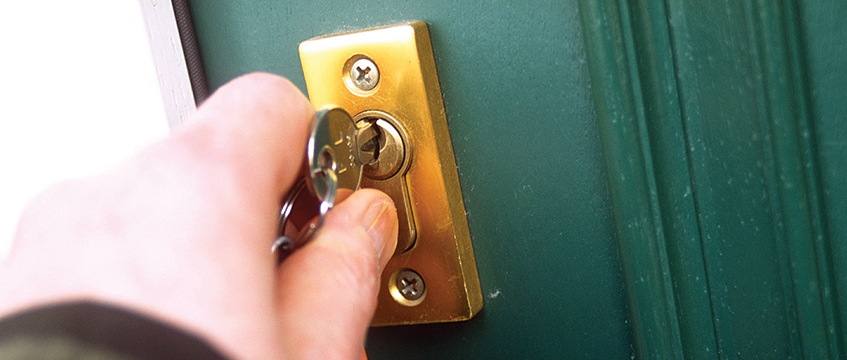Commonhold. This promising new form of property ownership, introduced in 2004, and taken up by very few despite its obvious advantages over leasehold, might have become a mere curiosity: a historical footnote in land law textbooks. It is now entirely possible, however, that it will be revived – and that it might even catch on. Ironically, this is not because anybody in government has had a Damascene conversion and decided that commonhold is intrinsically a good thing (although it undoubtedly is); rather it is because leasehold has been exposed in some notorious cases as potentially a very bad thing.
I first wrote about commonhold in these pages in 2007, in an article titled “Commonhold – slow on the uptake”. At that stage, a mere 13 commonholds had been registered. The number now is not significantly greater. I identified a number of reasons for the slow progress, and said that the new form of land ownership would only take off if three steps were taken by the government: (i) create an appetite for commonhold among purchasers by marketing it widely as a superior ownership vehicle; (ii) iron out the few legislative wrinkles that appeared to be deterring some developers, mortgagees and their legal advisers; and (iii) lead the way in the drive for a major expansion of accommodation by requiring new public sector housing to be commonhold. Despite the publication by the Ministry of Justice of a searching consultation paper (Commonhold: Improving the Legislation and Promoting Take Up), none of these steps was taken, and the legislative drive (with all-party support) that had succeeded in introducing commonhold appeared to have run out of steam.
Rising from the grave
There commonhold might have lain, unmourned save by the very few, and unloved in particular by the volume housebuilders: a great opportunity neglected for reasons that nobody would care to remember. But this all started changing in the last decade, for reasons that had nothing to do with commonhold, and everything to do with abuse of the leasehold system. The principal problems which emerged were twofold, although both related to the tendency of landowners to regard reversionary interests as potentially valuable assets, imposed on largely naïve leasehold owners. First, in place of the traditional peppercorn or nominal ground rents, leases of flats began to be sold with onerous and escalating ground rents, with some doubling at periodic intervals (generally 10 years), eventually making properties unmortgageable and unsaleable. Secondly, houses increasingly began to be sold on a leasehold, as opposed to freehold, basis, for no apparent reason other than for developers to extract a profit.
Some might ask how it was that those purchasing such homes did not realise what a burden they were taking on. I suspect that the reason for this is that most people are baffled by the system, and to the extent that they are properly advised (which is open to doubt, given that in many cases the housebuilder would insist on or recommend its own solicitor to carry out the conveyancing), they would simply have had their sights fixed on owning their first home.
It was the headlines caused by some of the cases that finally engaged the attention of the powers that be. Both the UK government and Welsh government have announced various proposals for leasehold and commonhold reform, in a series of papers and consultation exercises carried out between 2017 and 2019. The Competition and Markets Authority launched an investigation into leasehold home ownership in 2019, and published an interim report in 2020, in which it expressed concerns about ground rents in leases and about misselling of leasehold houses. It stated that it intended to take enforcement action in relation to the misselling of leasehold property, and in relation to leases containing high and escalating ground rents. Further, in its thorough reports published this July, the Law Commission stated in terms that it was not necessary for leasehold to be used as the mechanism for delivering home ownership. Rather, commonhold should be used in preference to leasehold, because it overcomes the inherent limitations of leasehold ownership.
A shot in the arm
The Law Commission set out a number of suggested reforms to reinvigorate commonhold as a workable alternative to leasehold, for both existing and new homes. It is careful to emphasise, however, that commonhold can only replace leasehold if it is workable in practice. Despite the government’s proposed ban on ground rents, leasehold will continue to be favoured by housebuilders because of the advantages the ownership of the reversion will continue to provide. The Commission therefore concludes that commonhold will not be used unless (a) it is made compulsory, or (b) adequate incentives are put in place to make it more attractive to developers. There is no reason why developers will start selling commonhold flats for so long as there is more money to be made by selling leasehold flats.
With the combined forces of the government, the CMA and the Law Commission behind it, it seems that there may finally be a sufficiently powerful following wind for a substantial take-up of commonhold, once the requisite legislative changes have been put into effect. Let us hope that the process does not take quite as long as it has thus far. I end with the Commission’s warning. “Commonhold is used around the world; it can and does work. But for so long as there is more money to be made from leasehold, and unless initial impetus can be given to overcome inherent inertia and a lack of awareness, it is not going to take root on its own. Without government intervention, commonhold simply cannot compete with leasehold.”








